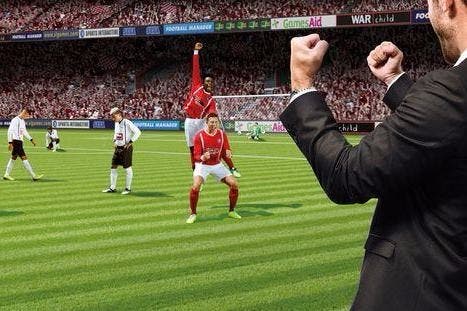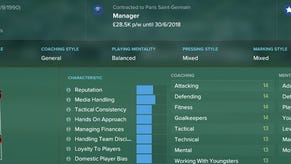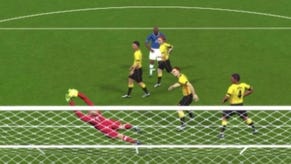Football Manager is the best eSport you've never heard of
Back of the net.
It's a Thursday evening in Kentish Town and the upstairs function room at The Grafton pub is absolutely heaving. In front of me, a crowd of men, each with their arms folded, are peering intently at a projector - tutting, cheering and grumbling at the proceedings on the screen.
But there is no live sport on. Instead, the crowd of men are watching Stremp City vs Barrett City battle it out in the final of the first round of The Football Manager 17 Cup - concluding three hours of competitive Football Manager action with a battle for a thousand quid.
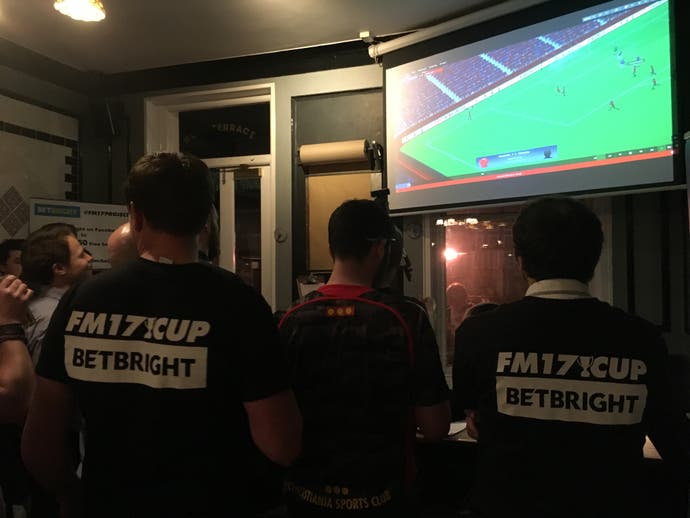
The big question I had in my head throughout was how on earth we had gotten here. Football Manager has a lengthy, and well-deserved, reputation as a solitary pursuit for footie lovers with an eye for a spreadsheet. Yet here I was, in a room full of players and fans socialising together, as two men did battle in front of us. What had happened?
The answer is complex - it's partly logistical, partly market-driven and partly down to Football Manager fans like myself desperately needing to leave the house. Whatever the precise reason behind its foundation, though, The FM 17 Cup also showed it was able to deliver the same gut-punching delights that football itself does. And when you put on a tournament like that on in a pub? Well, you end up having quite an evening, that's for sure.
Before diving into the meat and bones of that wondrous night out, it's worth rewinding to understand why it's slightly absurd for a Football Manager tournament to exist. Unlike FIFA or Pro Evolution Soccer, Football Manager has no competitive gaming history to draw upon. While the game itself has had online multiplayer modes that have encouraged competition - such as Football Manager Live, network save options and the draft option introduced in Football Manager 2016 - there also had been no attempt to make a high stakes tournament out of the game until this year.
For what it's worth, there are a number of practical reasons for that. The first is the nature of the game itself. Although Football Manager has a deep fan base in the UK, it lends itself to solitary scholarly play. While it's possible to pull a Harry Redknapp and push out your eleven favourite players in a 4-4-1-1 each fixture, most players are data obsessives. They scout prospects closely, analyse in game attributes carefully (sometimes, yes, using actual Excel spreadsheets) and construct systems to harness those talents when they take to the field.
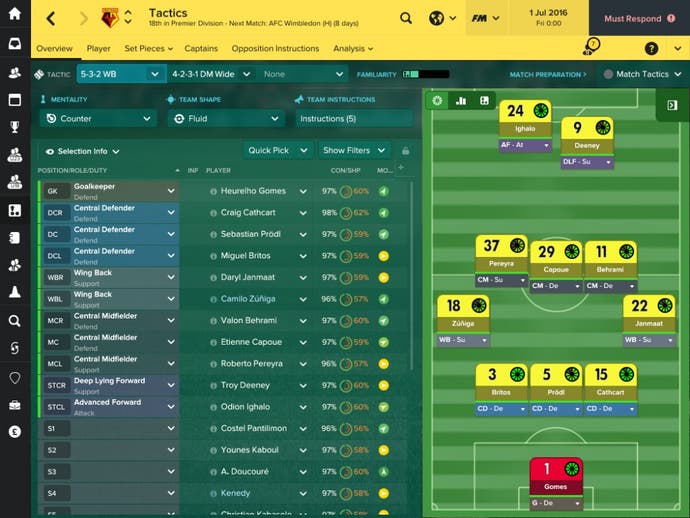
The result is a game that doesn't appear to be naturally watchable. The broadcast delights of FIFA stand in stark contrast to Football Manager, which, despite noticeable improvements to the match engine, remains a game where knowing your way around a menu proves remarkably handy.
Equally, there was a much larger question about the overall appetite in the wider world for Football Manager content or events. In the rabbit warrens of the FM Community, there have always been intensely detailed tactical blogs, lengthy forum posts and entertaining YouTube story saves to enjoy. But establishing whether there was a broader appetite for it beyond the borders of the fanbase was tough to determine. While FIFA Ultimate Team pack openings became a staple of YouTube culture, Football Manager has, for the most part, run the risk of being the eccentric family member you lock away in the attic at Christmas.
Solving this problem was key to laying the ground for the tournament, and this is where the people behind The Set Pieces - and supporter of the tournament, BetBright - stepped in. Founded by football journalist and Football Manager enthusiast Iain Macintosh in January 2015, the site decided to move away from traditional football coverage by chasing fewer "hot takes" in favour for in-depth long-lasting features. While most of this coverage revolved around the world of football itself, the site expanded to another stream of content too: long-term Football Manager projects.
Two memorable series kicked off the site's work: a Billy Beane inspired series called Moneyball from football writer Alex Stewart and a return to Championship Manager 01/02 with Everton by Macintosh himself. However, it was the commencement of the FM17 Project that laid the groundwork for this event. In contrast to earlier series, the project wasn't a solo affair.
Instead, it pitched Stewart and Macintosh against one another as managers of Celtic and Rangers with key fixtures broadcast live on BetBright's Facebook page - allowing tens of thousands of viewers tuning in to support or goad the managers. This both led to, and showed, that there was a bigger audience for Football Manager content. And according to The Set Piece's editor Matt Stanger, the reaction to the FM17 Project - particularly the competitive element - played a big part in encouraging the team to create the FM 17 Cup.
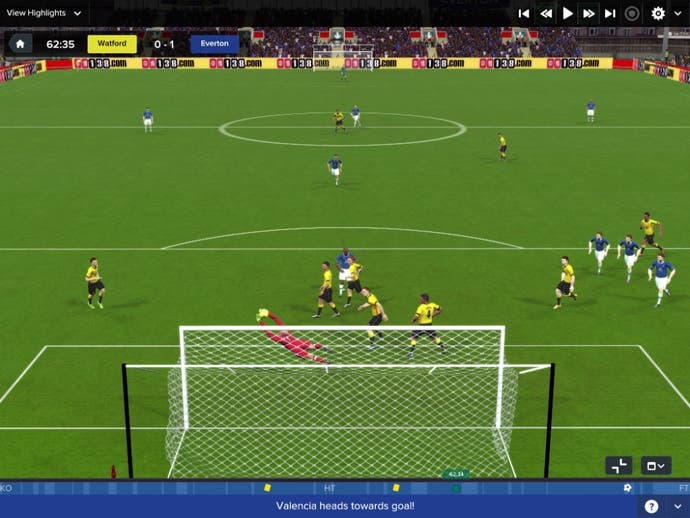
"Through the success of the FM17 Project we've seen the true size and online camaraderie of the FM community. We've hugely enjoyed reading everyone's reactions to the FM17 Project and so the logical next step was to take it on tour."
Once the decision had been made to go ahead with the tournament, two challenges emerged: establishing a format for it and then recruiting tournament participants. At the broader level, the tournament was structured as a heat-based knockout system. Between the 6th April and the beginning of May, the team decided to host four sixteen-player tournaments in London, Leeds, Manchester and Glasgow with the winner of each going through to an outright grand final on 4th May in the capital.
As for the tournament structure itself, each of the 15 matches in the straight knockout event were governed by strict rules established over the course of two trial runs at Football Manager HQ. "We spent several nights at Sports Interactive HQ working out the best possible format," Stanger explained.
This included the decision to hand every entrant a team of top class players, balanced independently by Football Manager creators Sports Interactive. This was necessary to both ensure fairness and stop entrants from taking part in a draft which would, in all honesty, have lasted longer than the competition was meant to.
Equally, the team had to determine match rules too. Chief among them was limiting how many changes a manager could make. At each fixture, the coaches were each given five minutes at the start of the match to set up a tactic. Then, once the matches were underway, each manager had the option to exercise a one minute tactical timeout - with additional timeouts in extra time or for injuries/suspensions.
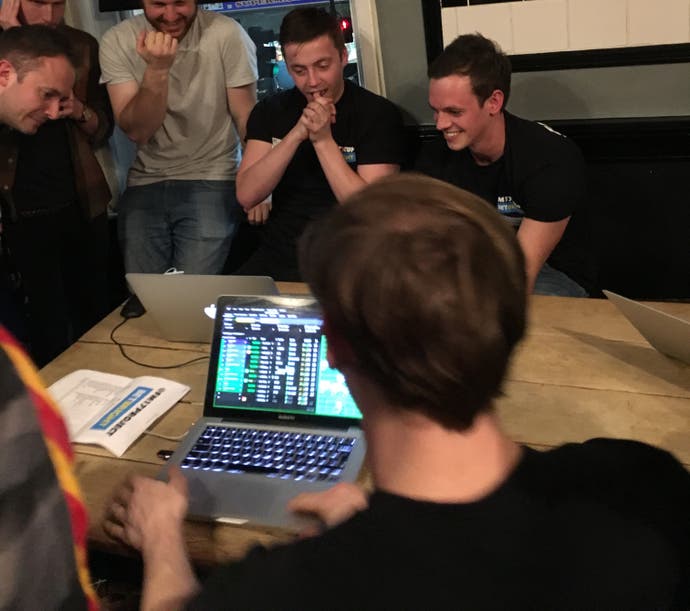
This was to allow managers the option to make changes. But it also prevented them from spending ages in the menus, improving the viewing experience significantly for fans wandering in.
Once the rules had been sorted out, the team still had to recruit players to enter the tournament. They did so through an intense qualification process. In the weeks leading up to the tournament, the site challenged players to show their skills in three virtual challenges. These included recreating classic formations, trying to achieve glory with Cheltenham Town or going big time with Rangers or Celtic. "There were some brilliant entries," Stanger told me of the initial applicants.
The challenges led to plenty of strong contenders on the day, but the cup was slow to start. While everyone turned up on time, a friendly atmosphere and a desire to talk tactics inevitably put the brakes on things - even the presence of Championship Manager legend Cherno Samba for the competition draw couldn't speed things along much.
When the games finally did get underway, however the competitive element almost immediately rose to the surface. The presence of a real audience created a lot of pressure. Systems that had been hermetically sealed away from the world on individual laptops were out in the open, with the managers living or dying by their efficacy. Sure, money was on the line. But so was pride, and losing that could be even more painful.
Bell United were the first team to experience that in brutal style. Despite sporting a side with Cristiano Ronaldo and Thomas Muller, they went 3-0 down within ten minutes against Athletico Gebler's rampant front line of Sergio Aguero, Dries Mertens and Miralajem Pjanic.
As each goal went in - broadcast on the projector screen for everyone to see - the crowd cheered, while others muttered "he's got to make a change now" to avoid a massacre. And though there wasn't a result as brutal in the opening fixtures, the shift from friendly tactical natterings to outright competitiveness lasted for the rest of the tournament.
In one game in the round of 16, a manager looked like he was going to be physically sick before his team narrowly got through on penalties. In the quarter finals, there was an audible sigh of relief when Athletico Gebler unexpectedly lost 1-0. And in the semi-finals, Ed Wilson, my co-host on a Football Manager podcast we run together, fell in the semi finals - pulling his match back to 3-3 against Stremp City before agonisingly going down 4-3 in extra time.
That heartbreak stood out for me. It didn't stand out just because a mate of mine lost; it stood out because I have felt the same feeling when Leeds were relegated or when England got knocked out of Euro 96. That's what was remarkable about all of this. The game may have been digital, but each match was treated with the sanctity of football itself.
People muttered darkly about how dangerous Aguero could be on the break. A sending off one of the matches not broadcast on the projector rapidly drew a crowd of onlookers. A lone shout of "counterpress!" from one distressed manager brought a chuckle from the haul.
In short, the FM 17 Cup worked because it distilled the madness of a full football tournament into a three hour window. And as I watched the final - which Stremp City won 5-1 to clinch the grand - that struck me as somewhat remarkable.
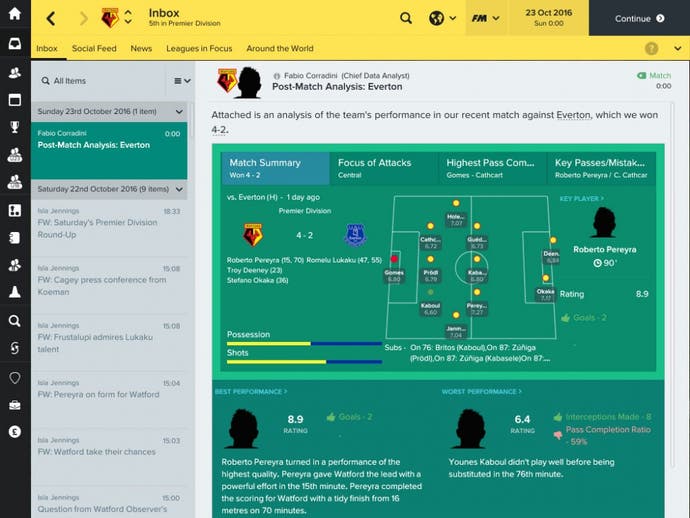
So what comes next? Well, the rest of the qualifiers and the grand final first. The cup itself careers onwards until the 4th May, where the winners from each heat will pick up their thousand pound prize before fighting it out for the five grand mega pot. More broadly though, I think Football Manager has a lot of potential of an eSport. The tournament format did a surprisingly effective job at taking a game that appears completely inaccessible to the outsider and delivering it in a way that makes perfect sense to a viewer.
The FM 17 Cup, in short, felt like a true distillation of the beautiful game itself. And in a world where plenty of people still don't 'get' eSports, this was a perfectly contained and accessible example of what they have to offer.
